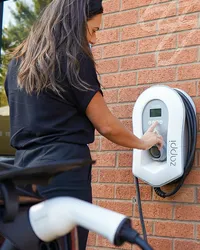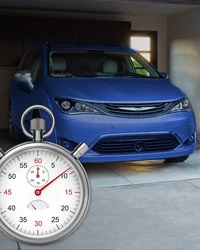Electric vehicle (EV) sales are projected to grow dramatically, with millions more cars coming to the roads in the next few years. But where will these cars charge up? At this moment, there are nearly four gas stations for every publicly available EV charging station. That means the infrastructure has a long way to go to catch up.
The cost of installing an EV charger can add up for a homeowner. Not only do they have to pay for the charger itself, which can range from $300 - $1,000, but then they have to pay for professional installation, which can cost just as much, if not more, than the equipment. Because of this significant cost, many organizations across the country are providing rebates, incentives, and tax credits for installing EV chargers.
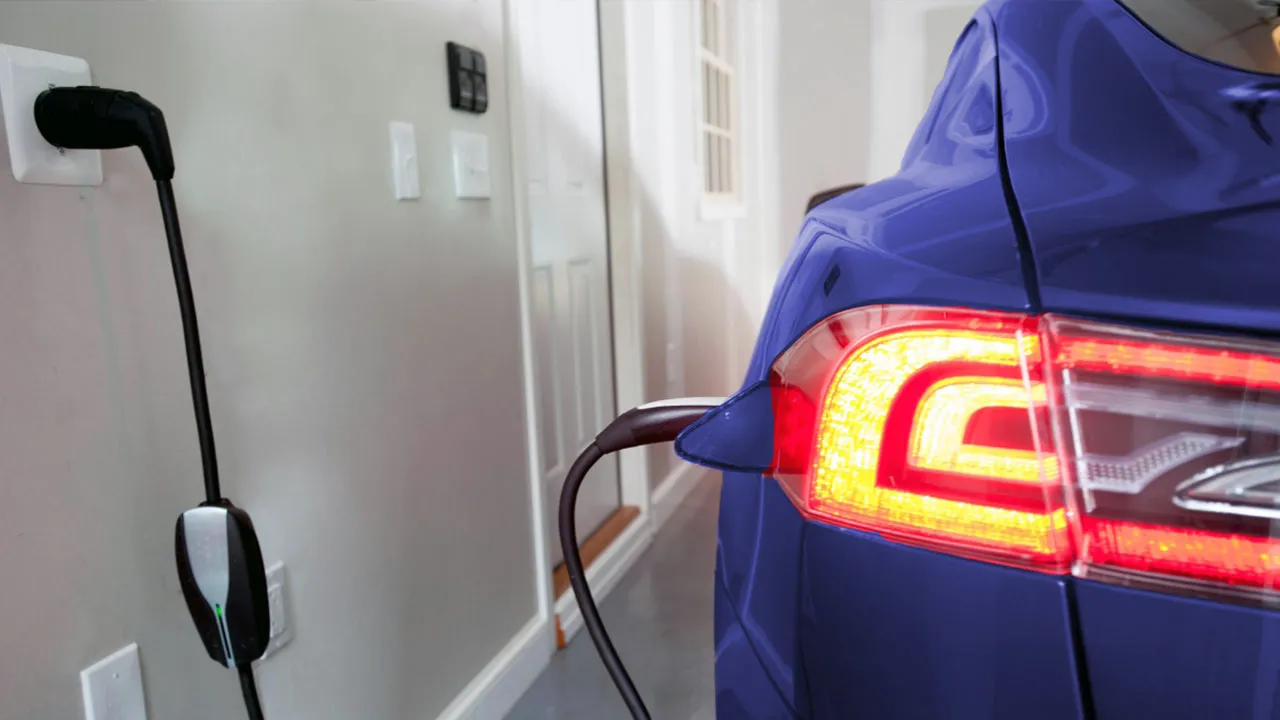
Sources of EV charger incentives
Rebates and incentives for EV chargers can come from a variety of sources. The most widely available funding source is the Federal 30C Tax Credit, also referred to as the "Alternative Fuel Infrastructure Tax Credit." This program provides a tax credit of 30% of the associated cost of installing an EV charger, up to $1,000 for residential applications. But that is just the low-hanging fruit; roughly one-third of the US also covered by an additional rebate, incentive or grant for EV chargers.
These incentives can come from a variety of sources. The most common sponsor is electric utilities, but funding is also available from municipalities, counties, regional programs and states. Oftentimes, these programs can be combined for even more savings.
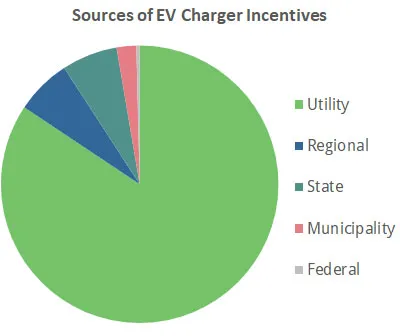
Rebates for Residential EV Chargers
When it comes to EV chargers for homes / private use, approximately 30% of the country has a rebate or incentive available. Most of these incentives are for level 2 chargers. That makes sense since most EVs come with level 1 chargers when purchased. On average, the rebate is $473 for this type of charger, but it can vary anywhere from $50 to $2000.
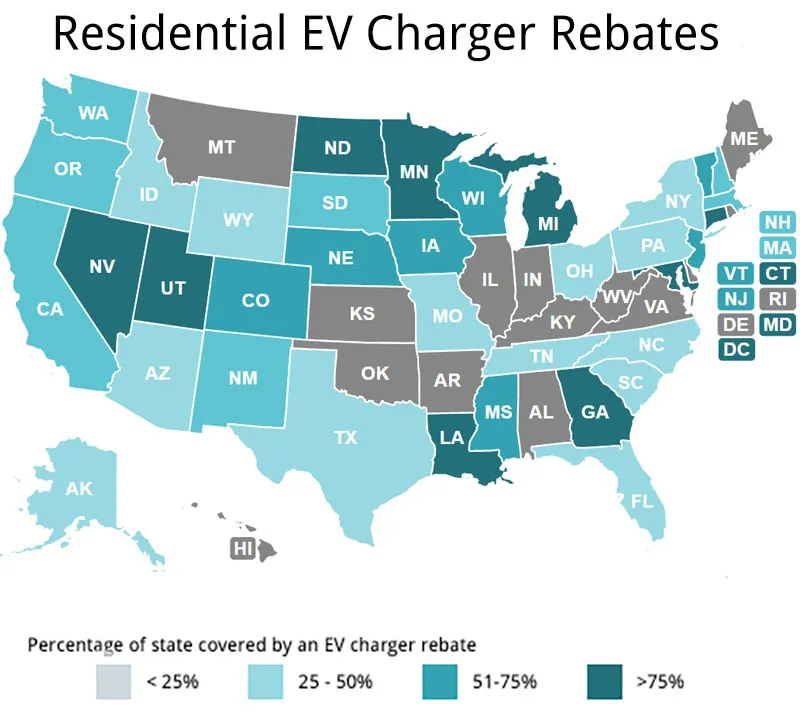
Things to keep in mind
Charger Features and Meter Requirements
Make sure the charger you purchase meets the program's requirements. For example, some rebate programs require that the charger be networked, usually with Wi-Fi, to report data back. Other programs require that the charger uses a specific rate code or billing plan.
Make/Model of EV Charger
The specific make and model of an EV charger can also matter. Some programs will require a particular brand of charger. Others will require that the charger is on an approved list. These types of programs are in the minority, with only around 5% of all rebates specifying certain models or brands.
Limits and Caps
When installing multiple chargers, it's important to look for any rebate caps per site. For example, some programs will only allow a certain number of chargers; others will cap the incentive at a specific dollar amount per site.
Program Funding and Availability
Some EV charger rebate programs have limited funding that goes very quickly. This issue will likely be even more true in the future as EVs grow in popularity. Pay attention to deadlines and make sure to adhere to them. Research the options early on to see if a program currently has a waitlist or will be re-opening in the future.
How long will EV charger rebates last?
It's hard to tell how long these incentives for EV chargers will last. Historically, rebates for other technologies like lighting, HVAC and other efficient equipment have been around for many years. But EV chargers are different; they don't provide energy efficiency benefits. Instead, they offer the utility a new way to make revenue. In theory, there will eventually be enough chargers to meet the demand, and these rebates might not be needed. Therefore, it's very likely that early adopters of EV charging will be the only ones to benefit most from rebates.
Find out which EV charger rebates are available to you
Use the tool below to see which rebate and incentive programs may be available to you. This tool will search for all local, county, regional, and Federal incentive programs you can use.
